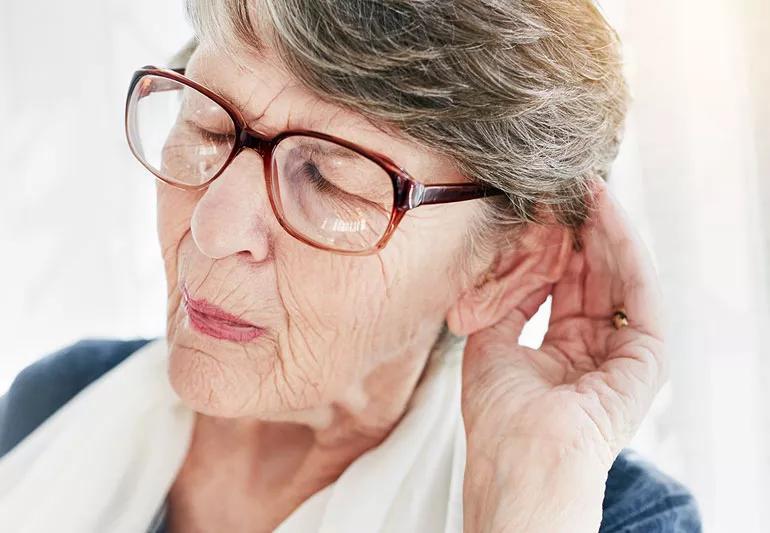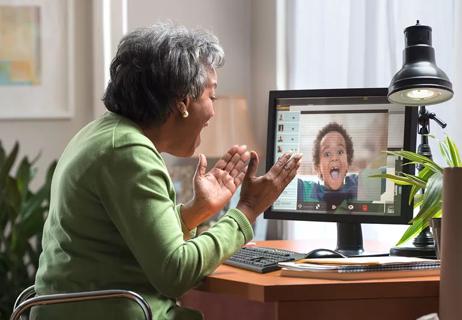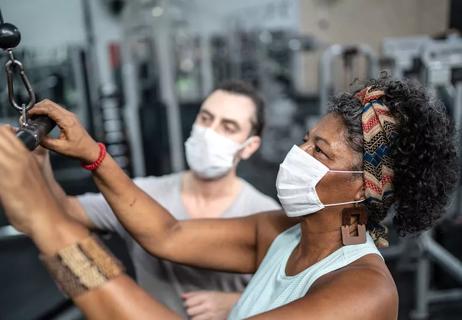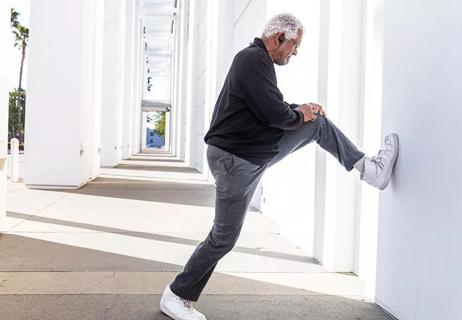What you can do about hearing and vision loss

If you find yourself saying, “Huh?” a lot, or you notice that your eyes aren’t as good as they used to be, you’re probably aware that your senses are declining with age.
Advertisement
Cleveland Clinic is a non-profit academic medical center. Advertising on our site helps support our mission. We do not endorse non-Cleveland Clinic products or services. Policy
You may also notice that your ability to perceive where your body is in relation to other people or objects (what is known as proprioception) also declines.
“When proprioception declines, you may feel more unsteady when walking and have difficulty with balance,” says geriatric specialist Ronan Factora, MD. “Hearing, vision, and proprioception all decline as a part of normal aging. But there are some things you can do to make sure you are functioning at your best.”
There are certain lifestyle factors that can contribute to hearing loss, Dr. Factora says. “Drinking large quantities of alcohol, exposure to loud noises and smoking can all be contributors.”
He recommends that men consume no more than two alcoholic drinks per day and that women drink no more than one per day. Avoid loud noises as much as possible, and use ear protection when you can’t. And if you smoker, ask your doctor for help with quitting.
There are also certain medications that can lead to hearing loss. “Excessive use of aspirin or ibuprofen, and also some antibiotics, can contribute to hearing loss,” Dr. Factora says. “Make sure you talk to your doctor about any medications you’re taking, whether they’re prescription or over-the-counter.”
Advertisement
Unfortunately, there’s not much you can do to slow vision decline as you age. What you can do is have regular exams by an ophthalmologist to make sure any vision changes are actually age-related, and not related to another underlying condition.
“After age 40, you should have an eye exam every one to two years,” Dr. Factora says. “Your ophthalmologist will look for contributing factors, such as glaucoma, cataracts, diabetes-related changes or macular degeneration.”
Sudden changes in vision are not a normal part of aging and need to be addressed immediately, he says.
If you feel like you’re having trouble balancing or like you’re unsteady on your feet, make sure you talk to your doctor. “Don’t assume it’s just a normal part of aging,” Dr. Factora says. “There are treatable conditions, like vitamin B12 deficiency or peripheral neuropathy, that can sometimes cause balance problems. These conditions can add insult to the normal aging process.”
Many people become socially isolated when their senses start to decline because they can’t see as well as they used to or have trouble hearing what others are saying. But you don’t have to let that happen. “Normal sensory decline should not affect function,” Dr. Factora says. “Your doctor can help you find ways to adjust so you can still live a full and robust life.”
Advertisement
Learn more about our editorial process.
Advertisement

Many chronic conditions can cause fatigue — but don’t overlook mental health concerns, iron level and hormones

Some planning, products and projects can help older adults stay in their homes safely longer

Loneliness is a key factor in worsening mental health among seniors

What to look for and how to handle signs of impaired driving

Learn how simple movements can preserve your health — and lessen your risk for falls

Leverage the synergy of simple adjustments

The signs might be subtle

A correct prescription helps your eyes see clearly — but as natural changes occur, you may need stronger or different eyeglasses

Wearing a scarf, adjusting your outdoor activities and following your asthma treatment plan can help limit breathing problems

Your diet in the weeks, days and hours ahead of your race can power you to the finish line

When someone guilt trips you, they’re using emotionally manipulative behavior to try to get you to act a certain way